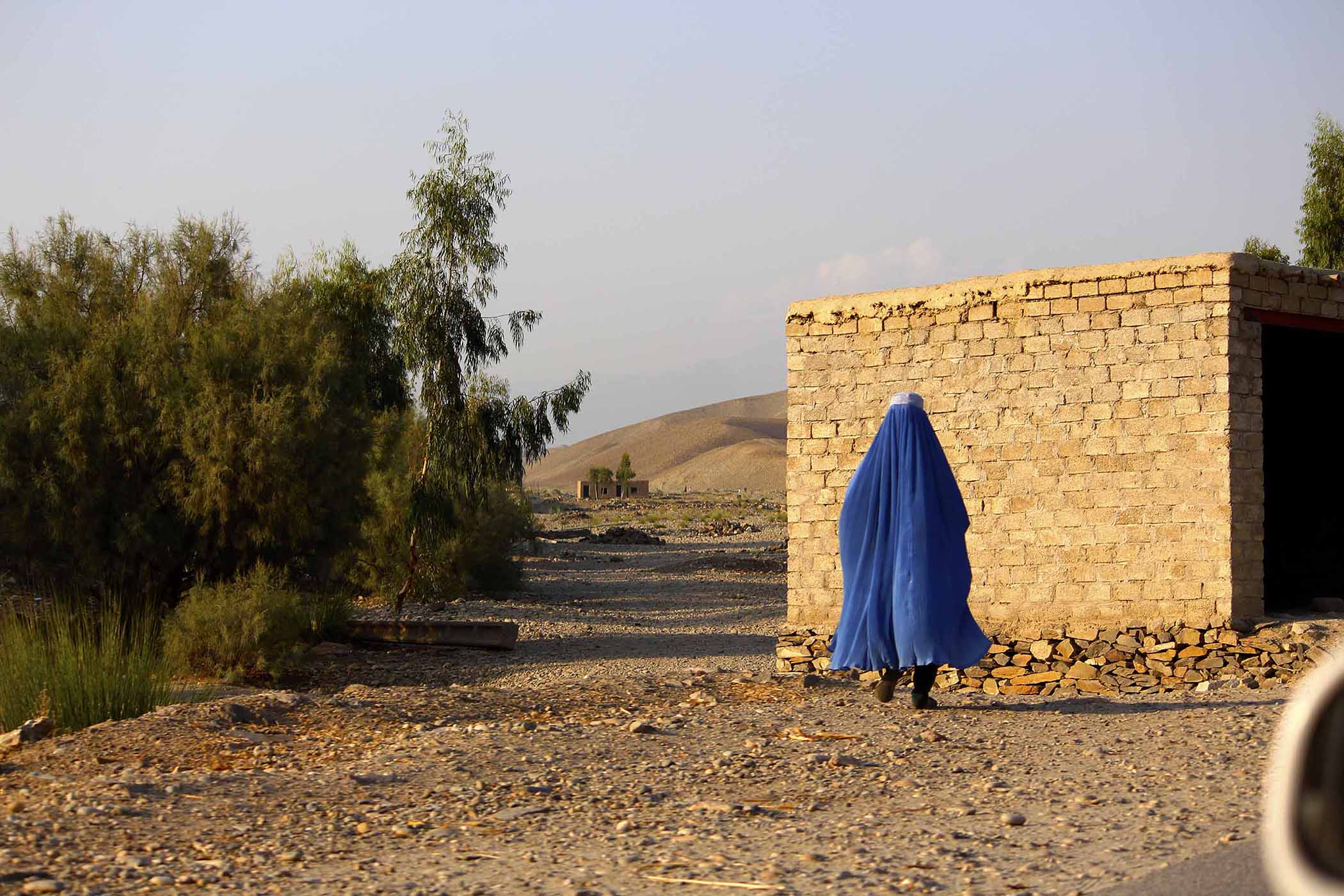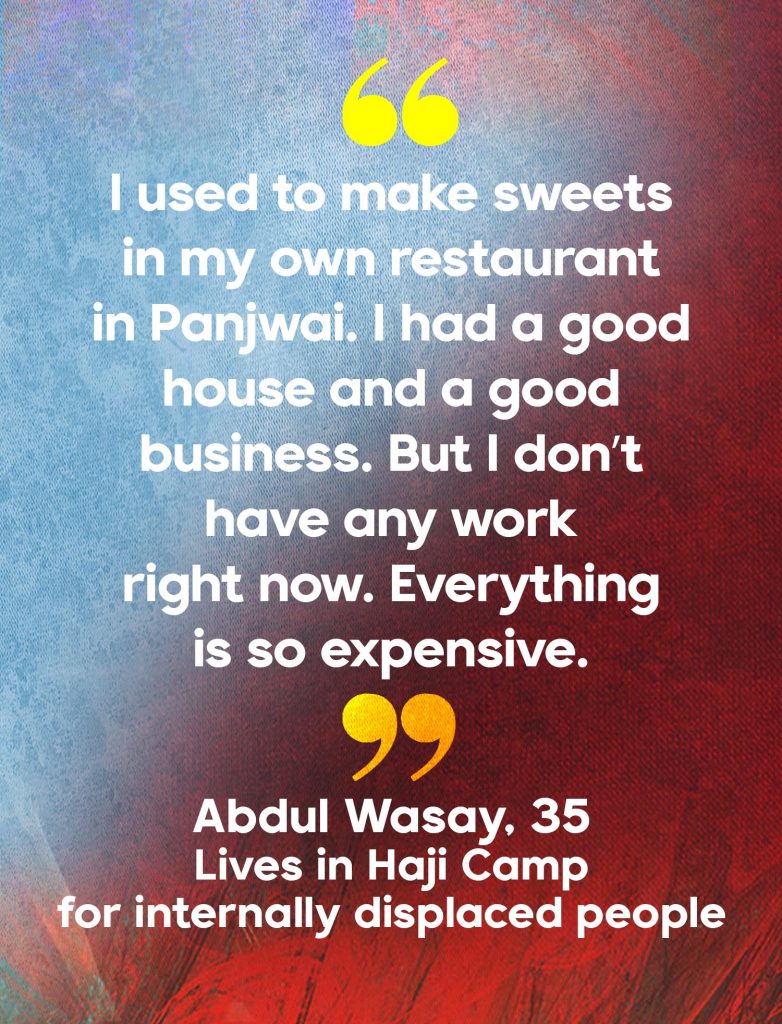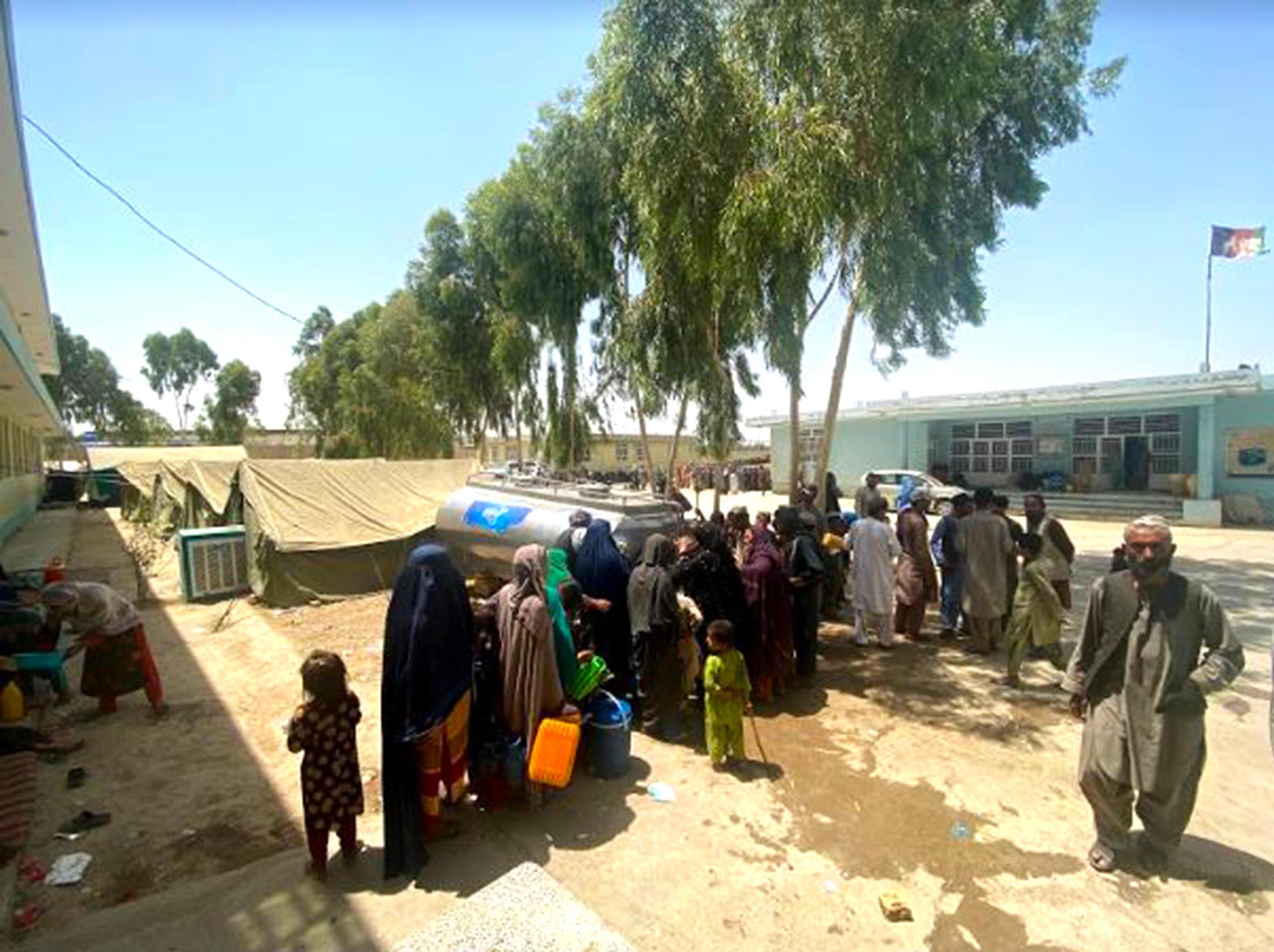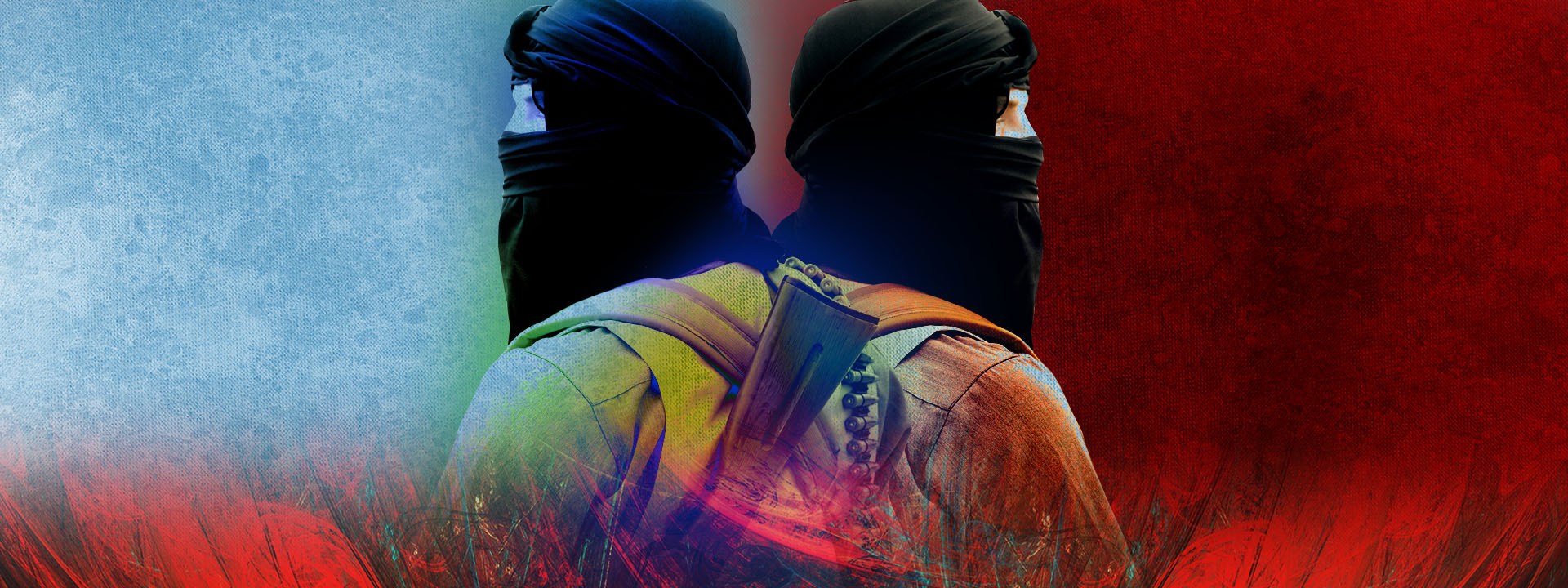Amonth after the Taliban retook control of their country, Afghans are still trying to sort out how to deal with their new situation.
In Kandahar, the Taliban stronghold during the 1990s when it first came to power, residents are cautious about sharing what they really think about their new rulers.
Most Afghans post-2001 era are palpably unwilling to submit to the strict order that the Taliban is poised to impose on what it calls the Islamic Emirate of Afghanistan — an unceremonious shift from the republic that the country used to be. Still, there are Afghans who say they are happy that at least the sound of gunfire has stopped.
“It is peaceful and quiet,” says one former government employee who is considering working for the new regime once the dust settles. “People are walking on the roads; nobody has been ordered to stay inside. We are happy that the war has ended.”

Afghan women fear severe punishment such as acid attacks if they are caught not wearing the traditional blue burqa by the Taliban. (Photo by Kanika Gupta)
Some people in Kandahar City, the provincial capital that is some 497 kms southwest of Kabul, also believe that the Taliban is not as bad as the international media are making it to be.
“Don’t think of me as someone supporting the Taliban government, but a lot of what we read or see in the media about them is just overhyped,” says one Kandahar resident who declines to be named.
“I work at the airport and have to interact with them every day,” the Kandahar local says. “The first time I spoke with a Taliban, I was surprised how nice he was to us. Most of these people condemn the Taliban because it makes for a stronger case when they apply for a visa to foreign countries. I am applying for a visa, too, and feel bad about lying in my application about them. But unless my life is in danger, why would they give me a visa?”
Beards, whips, and women
The militant group known as the Taliban was a product of a civil war that erupted after the Soviets were ousted from the country in 1989. The group captured Kandahar in 1994 and went on to take over Kabul two years later, establishing its hardline Islamist rule across 90 percent of Afghanistan. In 2001, however, the United States invaded Afghanistan to weed out Al Qaeda, which was responsible for the 9/11 attacks and was being protected by the Taliban. The U.S. invasion upended the Taliban regime as well.
Today, 20 years later, the Taliban is back in power. After sweeping through much of the country, the group once again seized control of Kandahar City along with Herat on 13 August. Two days later, it was also lording over Kabul and declaring itself in control of most of Afghanistan.
During its brief rule in the late 1990s to early 2000s, the Taliban became infamous for its ruthless interpretation of Sharia law that included the oppression of women and minorities. Women were not allowed in public spaces, prohibited from getting an education, and banned from political participation. Men were forbidden from trimming their beards; television, music, and cinema were banned. Even minor infractions meant harsh punishments, which would often be meted out in public.
In Kandahar City, most of the local populace are too young to remember the horrors brought by the Taliban decades ago. But those who do are shuddering at the thought of having to live through all that all over again.

“They carried whips with them and lashed women who did not follow their rules,” says a 30-year-old homemaker. “It was mandatory to wear a chadori at all times.”
The chadori is a shapeless blue garment that covers a woman’s entire body, including the arms, head, and face. There is a tiny mesh screen in front of the woman’s eyes for her to see through. Asked what would happen now if the Taliban caught her not wearing one, the young woman’s eyes bulge in fear before she blurts out, “They will throw acid on my face.”
New image, old ways?
The Taliban, however, has rebranded itself as a supposed moderate power and continues to assure people that women will be allowed to resume work and school in accordance with Sharia law. It has not been immediately clear though what it means exactly when it says “according to Islamic law.”
In a 17 August press conference, Taliban spokesperson Zabiullah Mujahid tried to soothe some of the apprehensions about the group’s second coming by claiming that “there’s a huge difference between us, in comparison to 20 years ago.”
According to Mujahid, they will make sure everyone in the country is included and no one is harmed. “When it comes to women, of course, they will be able to work within the frameworks of our Islamic laws — for example in education, in health, in prosecution,” he said. “Of course, women are needed, they are going to be able to be working.”
But then the Taliban announced a new, all-male interim government that includes veterans of its previous rule. This move has made the international community skeptical about the Taliban’s assurances of an inclusive and progressive country governed within the purview of Sharia law.
The U.S. State Department, for one, has expressed concerns regarding the “affiliations and track records of some of the individuals” in the Taliban’s newly appointed cabinet. U.S. Secretary of State Antony J. Blinken said in a statement, “We’ll continue to monitor carefully the Taliban’s actions, including when it comes to respecting freedom of assembly and the right to peaceful protest.”
Then again, the United States no longer has military forces in Afghanistan; the Afghans will now have to deal with the Taliban on their own. And so while residents confirm that Kandahar is back to normal, people are fearful of openly criticizing the newly formed government.
A senior official employed by the erstwhile government at the Kandahar International Airport also tells ADC, “The life for people of Kandahar is going ‘business as usual.’ But (for) people like me, especially the high-ranking government officials, we are living in danger every day. My own bodyguard has now joined the Taliban and is threatening to kill me.”
Money matters
In the meantime, the already fragile and aid-dependent Afghan economy has gone into a tailspin, as Western governments, such as the United States and Germany, suspend humanitarian aid to the country. According to World Bank, 40 percent of Afghanistan’s GDP is dependent on foreign aid.
As the Taliban came marching into Kabul on 15 August, Afghanistan’s internal banking system was also frozen. Banks were closed and the ATMs devoid of any cash made the lives of its citizens increasingly difficult.
“We have not been paid last month’s salary,” says a former employee who worked in the security department of the Kandahar International Airport. “But the Taliban has assured us that they will in a couple of days.”
On 5 September, in a meeting with Mullah Abdul Ghani Baradar and other senior Taliban officials, Martin Griffiths, UN undersecretary-general for humanitarian affairs, pledged the UN’s continued cooperation to the Afghan people.

Internally displaced Afghans living in Haji Camp in Kandahar line up for water from a community water tank. They are in dire need of other basic supplies and services as they struggle to survive under Taliban rule. (Photo by Kanika Gupta)
Taliban spokesperson Suhail Shaheen said on Twitter that Griffiths “promised continuation of humanitarian assistance to the Afghan people, saying he would call for further assistance to Afghanistan during the coming meeting of donor countries.”
Such help cannot come any sooner for 35-year-old Abdul Wasay, who was displaced and living in Kandahar City’s Haji Camp when the fight between Taliban and Afghan National Army was raging in his village in Panjwai district in Kandahar Province. After the fighting stopped, he moved back home with his family. He has since been wondering what to do next.
“We don’t know anything about work, children’s education, no income,” he says. “We are sitting idle without food and money.”
“I used to make sweets in my own restaurant in Panjwai,” Wasay says. “I had a good house and a good business. But I don’t have any work right now. Everything is so expensive. The food that cost AFN 200 (US$2.35) before is now AFN 1,500 (US$17.64).”
At the very least, he says, the Taliban do not harass anyone on the streets and are often just manning their security posts. “They don’t say anything to us, we don’t say anything to them,” Wasay says. “I just hope they give us some work so that I can feed my family.” ●
Kanika Gupta is a multimedia journalist based in New Delhi, India, and works out of Kashmir and Afghanistan. She reports on culture and human interest issues from conflict regions.



















